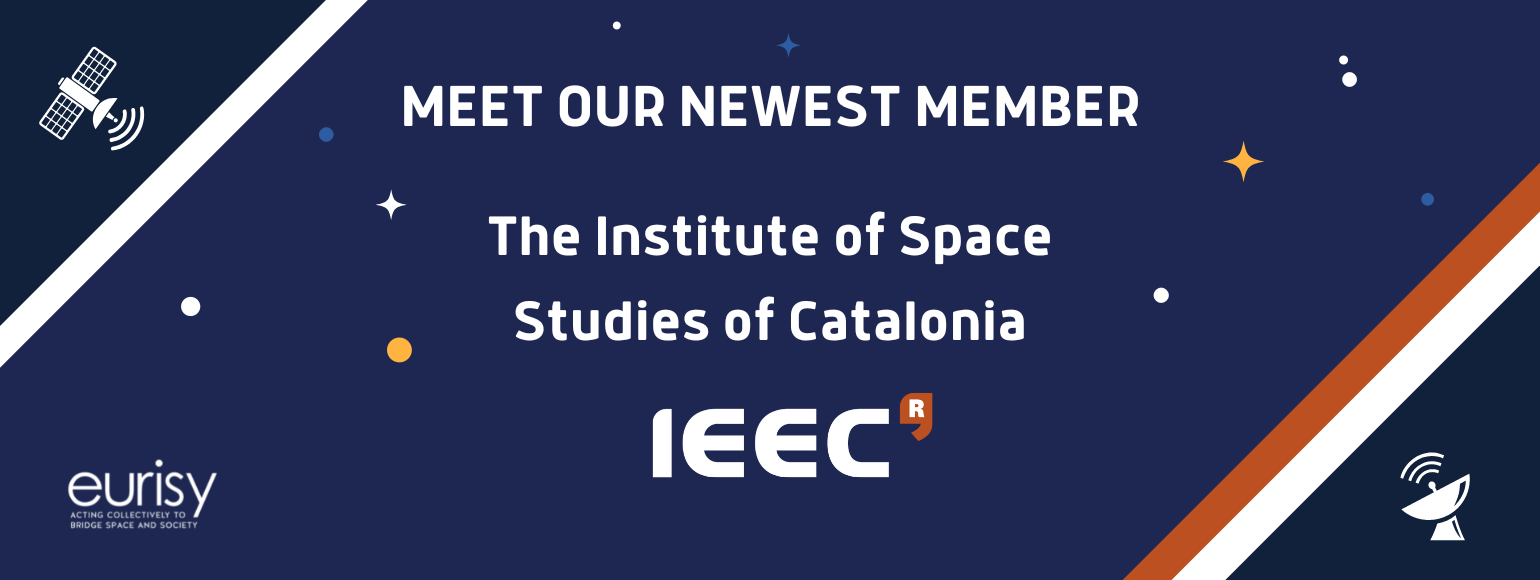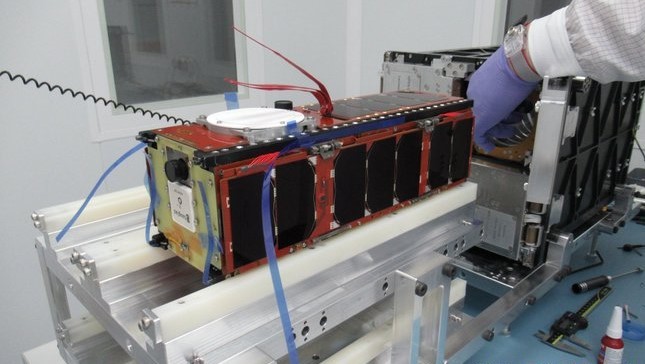Meet our newest member: The Institute of Space Studies of Catalonia

The Institute of Space Studies of Catalonia (IEEC) has recently joined Eurisy. It is already the 20th member of an expanding network of space organisations across Europe collaborating to disseminate space-derived innovation into society. In what follows we introduce our new member with an overview of their activities and priorities.
Established in February 1996 in Barcelona, the mission of the IEEC Foundation is to expand the frontiers of space research and to put scientific and technological advancements at the service of society at large. The IEEC promotes and develops research and innovation programmes on space science and technology to increase the competitiveness of the space sector in Catalonia. The institute also makes significant efforts in raising awareness of space research and industry.
The Foundation has a privileged position in a highly recognised ecosystem, measured in terms of talent, competitiveness and innovation. It hosts researchers from four academic institutions (UB, UPC, UAB, CSIC) and is a CERCA institute. CERCA includes more than 40 research centres in Catalonia, covering broad areas such as biomedicine and health, astrophysics and space technologies, photonics, artificial intelligence, and many others.
Research activities at the IEEC related to space include astrophysics, cosmology, planetary science, Earth observation, navigation, and space engineering. Renowned for its expertise in these fields, it produces high-impact publications in space science and space technologies, while also developing strong and multidisciplinary connections with other areas, like fundamental physics, geology and biology. Furthermore, the institute manages key infrastructure in Catalonia and boasts a team of engineers with extensive experience in the space sector to develop instrumentation for space missions and ground-based facilities.
Catalonia’s NewSpace strategy
The Catalan region is one of the major start-up hubs in Europe and benefits from a dynamic, industrial, and diverse economy. Its space segment offers experience in launching missions, designing and developing payloads, deploying ground segment assets for satellite communications, data exploitation, and relevant know-how in the field of telecommunications. In 2020, given the increasing importance of the space sector and its potential as an enabler of growth in other sectors, the government of Catalonia adopted the NewSpace Strategy of Catalonia. With this strategy, the region aims to reinforce its innovation and space capabilities through a multi-sectoral approach focused on the needs of public administrations and user communities in areas such as agriculture, energy, transport, emergency management, and urban development, among others.
The IEEC is the lead entity on space technologies in the region, contributing to the implementation of the NewSpace Strategy under the leadership of the Catalan Government (Generalitat de Catalunya) and in collaboration with the i2cat Foundation and the Catalan Institute for Cartography and Geology (ICGC). As a centre for the development of new Earth observation concepts, the IEEC carries out the launch of missions that will provide satellite data services. Several nanosatellites will obtain images of the Earth in different spectral bands and will be combined with data coming from large programmes like Copernicus to study the territory and drive activities to reduce local and global climate change effects. In addition, different nanosatellites will provide connectivity in parts of the region that have poor or no conventional terrestrial network coverage and will also provide ground-truth measurements to increase the precision of the Earth observation satellite data.

Image of the nanosatellite “Enxaneta”, developed by the Catalan companies Sateliot and Open Cosmos through a contract tendered by the IEEC. This 3-unit CubeSat provides Internet of Things (IoT) connectivity and 5G coverage. Credits: Open Cosmos
A flourishing space ecosystem
Ultimately, the above-mentioned missions aim to favour the growth of the NewSpace ecosystem in Catalonia. Actors in the industrial, academic, and public sphere will be actively involved throughout the different mission phases, from the construction and operation of satellites to the management of data and the provision of services.
Talent and innovation programmes are another crucial part of the NewSpace Strategy that will guarantee the successful consolidation and flourishing of this space hub in Southern Europe. The NewSpace Strategy aims at creating a significant amount of new jobs, attracting talent and raising students’ interest in space and STEM subjects, while professionals from other sectors will be able to learn about the benefits that space assets can offer to them. An excellent way to introduce students and young professionals to the European space programme are the CASSINI hackathons that will be hosted this year in Barcelona, with the Knowledge Innovation Market Foundation, the Chamber of Commerce of Barcelona and the IEEC as local organisers. Developing ideas for digital applications building on space data is also encouraged within the ESA Business Innovation Centre in Barcelona, which will be reactivated by the end of this year to support the creation of more startups.
By being part of European projects and networks, the IEEC ensures international collaboration. It allows the institution to share and take inspiration from innovative solutions. By illustrating the way industry and administration incorporate space data as a solution to their problems, new services can be introduced more easily. Eurisy is all about sharing good practices, gathering feedback from early adopters, and bringing the value of space data closer to user communities. Joining such a network adds to the objective of the IEEC to become an internationally recognised centre and to foster collaborations both locally and globally.
